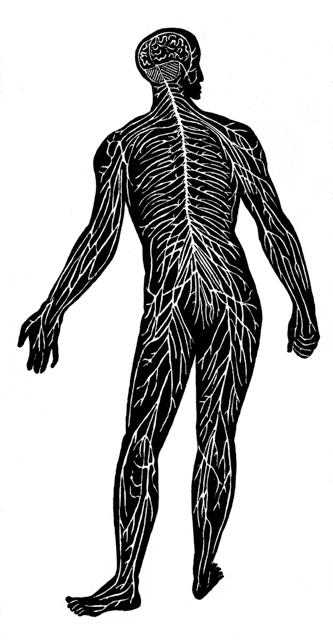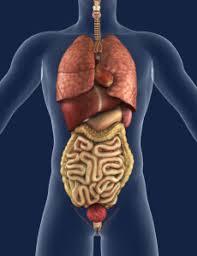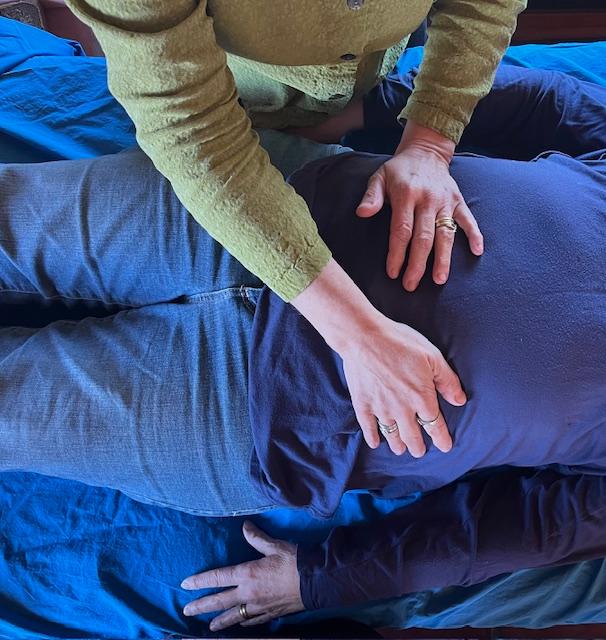Visceral and Neural Mobilization
(Organs and Nerves)
What is Visceral and Nerual Mobilization (Organs and Nerves)?


Visceral and neural mobilization are very gentle manual therapies that treat gross and subtle motion restrictions in the nerves and organs, such as kidneys, bladder, lungs, etc. Healthy functioning of our nerves and viscera depends on their ability to move with us as we move our bodies without being restricted by connective tissue tension between them and the bones or other structures to which they’re attached. In addition to being able to move with us as we walk, bend, twist, and sit, they need to be able to express the subtle movements inherent in their nature as we breathe with the rhythms of life as well as the movements needed to do their job, such as the colon moving food along, and kidneys filtering the blood. Organs and nerves need the slide and glide that creates optimal function and health, and subtle or gross motion restrictions in any viscera can result in decreased function, infections, poor posture, and stress.
Our innate wisdom prioritizes the health of our nerves and viscera, since we cannot live long if they are damaged or not functioning well. However, we can live just fine with tight muscles and restricted joints. Therefore, if an organ is, for example, so restricted by tight membranes or ligaments between it and the ribs that it is unable to move well, in addition to losing optimal function, a subtle state of alert is created in our system. Our bodies know we can damage our nerves and viscera by asking them to move in ways they can’t, just as our neck will protest if we try to turn it when a nerve is being pinched. In order to protect nerves and viscera from motions that might hurt them, we create restrictive movement patterns in our musculoskeletal system. A tight hip, for instance, might come from lack of mobility in the intestines or pelvic organs which requires the body to tighten the muscles around the hip to keep the organs from being overstretched. We would probably experience that as pain in our hip, sacrum, or lower back. If the lobes of our lungs don’t have slide and glide in relation to each other, or in their attachment to the inside of our ribs, we might spasm our back muscles to keep from twisting or bending in a way that could damage the lungs.
There is not always a clear cause and effect … sometimes, for instance, there might be strain in the gut that is pulling on the liver, which is pulling on the ribs, which is making a shoulder be tight or painful. Because the compensations can be far from the source, in a neural/visceral session, the entire body is evaluated to find the root of the restriction.
Treatment of the nerves and viscera involves gentle compression, mobilization, and following their movements as their restrictions are eased and movement returns. It is sometimes important to treat the surrounding soft tissues as well, but often they relax as a result of the ease coming back to the viscera and nerves. It is relaxing, and profound, to feel our nerves and viscera start to free up and move more fully with their own life force as well as with the movements of our bodies.

Visceral and Neural Mobilization are often integrated into a Rolfing® Structural Integration treatment, or also can be part of a stand-alone session.
• Digestive issues.
• Breathing trouble such as asthma, COPD, or chronic bronchitis.
• Menstrual discomfort, reproductive health issues.
• Pinched nerves such as in the neck, or sciatica.
• Mobility restriction in the head, neck, or torso.
• Brain injuries, concussions, strokes.
• Recovery from surgery, or preparing for surgery.
• Gallbladder issues, liver or kidney dysfunction, heart trouble.
• Difficulty standing straight, chronic postural issues.
• Back, shoulder, or neck pain.
• Tinnitus.
• Numbness or tingling in arms, hands, legs, or feet.
• Pain in the knees, elbows, or other joints.
$108.19
BOOK NOW
